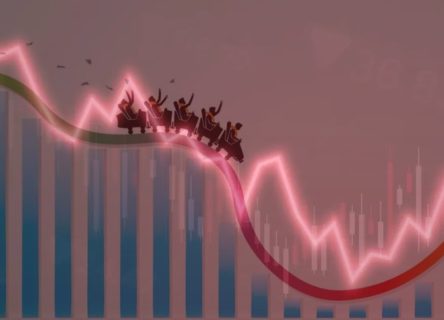
Every week, the coaches at Prosper Trading Academy offer their insight on some of the most challenging questions covering recent stock market developments, trading tips, and relevant news stories. This week, Scott Bauer, Charlie Moon, and Mike Shorr give their thoughts on why certain stock market sectors are staying resilient amid the FOMC fallout, and some common mistakes they see among the younger generation of traders.
In the wake of last week’s FOMC announcement, you guys noticed that consumer staples stocks remained particularly strong. Why are securities in this specific sector staying so resilient while the rest of the market is taking a hit?
Charlie: They tend to be a flight to safety. They usually have dividends and more importantly, even in the face of recession, these products and retailers are in demand. Similar to those that flight to gold during rough markets, the idea of demand in these staples are based on historical cycles. They tend to be the ones that hold up best when our economy is in a recession.
Mike: Consumer staples are considered to be non-cyclical, meaning that they are always in demand, year-round, no matter how well the economy is—or is not—performing. The need for things like food, energy, household necessities, etc. does not diminish in any economy. So, consumer staples are impervious to business cycles. Also, people tend to demand consumer staples at a relatively constant level, regardless of their price. The converse would be true in very bullish markets. These types of stocks tend to underperform in growth cycles.
Scott: As rates rise, inflation lingers and the market continues its downturn, one sector that has stayed relatively strong is consumer staples. These companies are typically defensive because their products are more likely “essentials” that consumers are unable or unwilling to cut out of their budgets regardless of the situation.
A recent study found that inflation and volatility concerns are causing many Millennial and Gen Z traders to sell their holdings or close accounts. What are some recurring mistakes you’re noticing that younger traders are making in these market conditions?
Charlie: Their biggest mistake is not understanding risk and being stubborn. I also think the younger generations aren’t as tough as the older ones, so they could get mentally fried a lot easier than most. This also pertains to taking on more risk than they normally should. When you compound being both overleveraged and wrong, people tend to blow out in these market conditions. I also think the younger-gen traders are making the most as they are willing to take the risk. It’s a lot of give and take, and as always with the stock market, only the strong survive. Embrace and manage the risk if you want to stay in the game for the long run.
Mike: It is my observation that in general, this class of “investors” are not really investors. They seem to act more like traders or speculators. Long time horizons do not seem to be part of their DNA. They tend to move with the latest trend and then abandon those trends when they wane. If you have a long time horizon as these folks have, it is very important to accumulate assets as they come down in price. That is a very simple way to achieve wealth in the long run.
Scott: Younger traders have never seen a market like this, let alone traded through one. A market like this takes diligence, resolve, patience and the acceptance that “the market can stay bearish longer than one can stay solvent.” The younger generation has only seen the market move one way and in my opinion is most likely looking for home runs.
Enjoying our content?
Sign up for our free newsletter – Traders Daily Brief
Read more of our blogs




